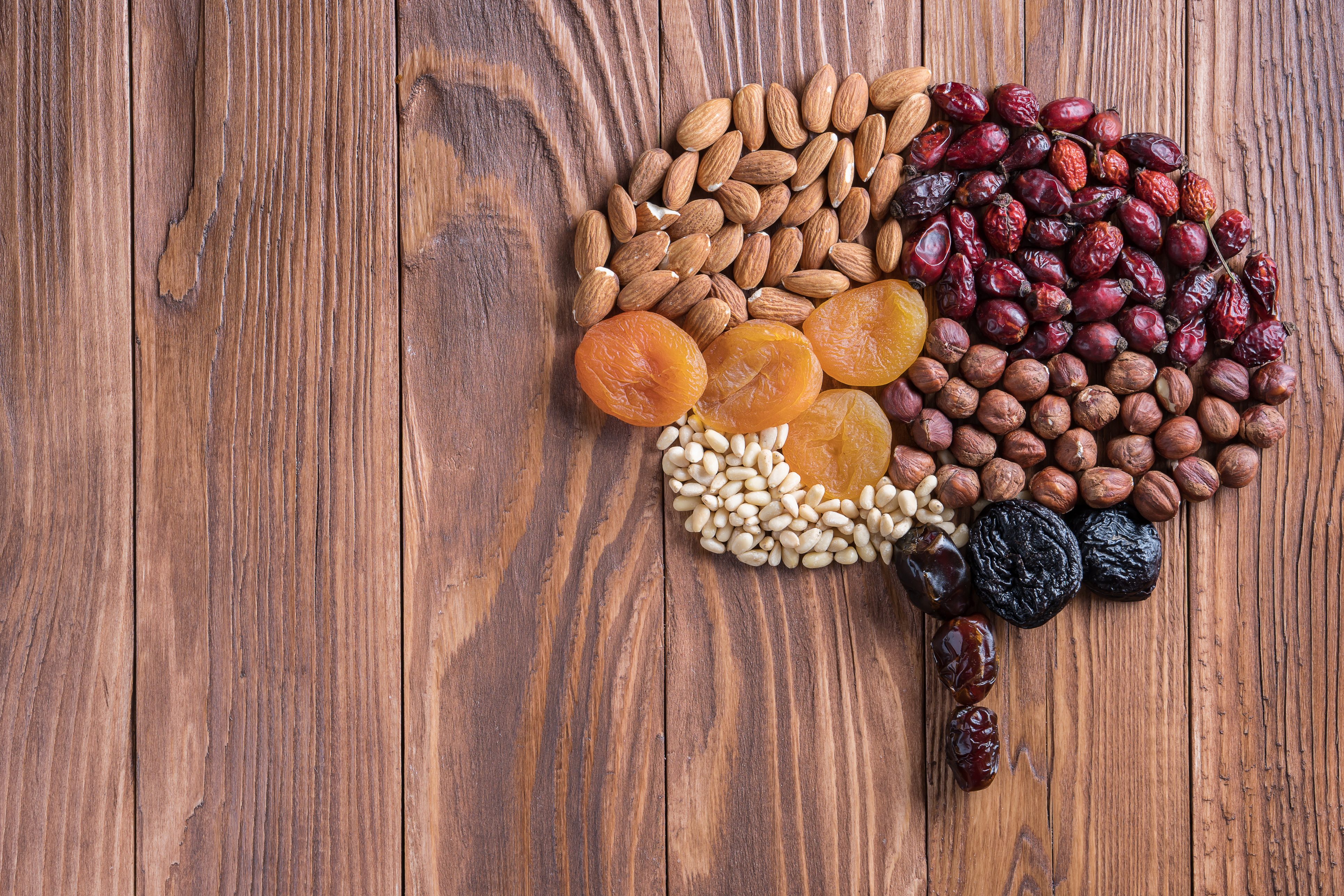Feed The Brain
November 29th, 2018 | Posted in
Uncategorized
If you read the blog post on Easy Steps to Brain Health you’ll have discovered some lifestyle interventions you can make to protect your brain. In addition, eating a whole food diet free from processed foods is one of the best things you can do for your brain. There are some foods that have been shown to have particular benefits for brain health.

Here are just a few of the beneficial foods:
- Anti-inflammatory foods – the omega 3 essential fats have anti-inflammatory properties which are beneficial to brain health (1) . Good sources include oily fish, avocados, walnuts, pumpkin seeds, flax seeds, chia seeds and hemp seeds. The cold pressed oils of these foods can be used on foods after cooking or on salads.
- Antioxidants – may have a protective effect on the brain by helping to prevent oxidation and inflammation. Include plenty of fruit, vegetables, nuts and seeds (1). Aim for a wide range of colours to get a broad range of antioxidants.
- Brazil nuts – low intakes of selenium are associated with an increased risk of cognitive decline (2). Just 2-3 Brazil nuts a day should provide sufficient selenium for your daily needs.
- Green vegetables – cruciferous vegetables, such as broccoli, cabbage, cauliflower and kale, contain a compound called sulforaphane which has been shown to repair the brain and to stimulate nerve growth.
- Folate foods – folate levels are associated with lower homocysteine levels, improved brain health and a reduced risk of dementia and Alzheimer’s disease (3,4). Good sources of folate include spinach, broccoli, cauliflower, asparagus, Brussel’s sprouts, tomato juice, beans and lentils.
- Turmeric – as well as having anti-inflammatory and anti-cancer properties, turmeric helps repair the myelin sheath around nerve cells and may help to generate new brain cells.
- Green tea – catechins in green tea have neuroprotective properties and may help to stimulate the growth of new neurons.
- Chickpeas – almost two-thirds of the tryptophan in chickpeas is free form suggesting that chickpeas may be a viable way to boost tryptophan and serotonin levels, and, as a result, improve your mood!
- Olive oil – the consumption of extra-virgin olive oil protects memory and learning ability and reduces the formation of amyloid-beta plaques and tangles in the brain which are both classic markers of Alzheimer’s disease.
- Beetroot juice – beetroot juice, a rich source of dietary nitrate, has been shown to enhance brain function and improve cognitive performance probably by enhancing blood circulation to the brain (5).
- Spice it up – the anti-inflammatory nature and high antioxidant status of many spices appears to have a protective effect on the brain. Research indicates that spices such as turmeric, red pepper, black pepper, licorice, clove, ginger, garlic, coriander, and cinnamon target inflammatory pathways and thereby may help prevent neurodegenerative diseases (6).
Some general tips for eating for a healthy brain include:
- Eat a diet high in nutrients – especially those involved in homocysteine metabolism. Homocysteine occurs naturally in the body as a result of the metabolism of methionine. High levels of homocysteine are associated with cognitive problems such as Alzheimer’s disease as well as cardiovascular disease. Homocysteine reducing nutrients include B6, B12, zinc, folic acid and tri-methlyglycine (TMG).
- Avoid inflammatory foods – inflammation damages the brain. Avoid sugar, refined carbohydrates, processed foods, trans fats and hydrogenated fats.
- Hydrate – the brain needs water to function. When dehydrated brain function is compromised.
See also the blog post on Herbs and Supplements for Brain Health.
References
- Barberger-Gateau P, Raffaitin C, Letenneur L et al. Dietary patterns and risk of dementia: the Three cohort study. Neurology. 2007 Nov 13;69(20):1921-30
- Gao S, Jin Y, Hall KS, Liang C et al. Selenium level and cognitive function in rural elderly Chinese. Am J Epid. 2007 Apr 15;165(8):955-65
- Bourre JM, The role of nutritional factors on the structure and function of the brain: an update on dietary requirements, 2004 Sep;160(8-9):767-92
- Kronenberg G, Colla M, Endres M. Folic acid, neurodegenerative and neuropsychiatric disease. Curr Mol Med. 2009 Apr;9(3):315-23Jiang LF, Yao TM, Zhu ZL, Wang C, Ji LN
- Wightman EL, Haskell-Ramsay CF, Thompson KG, Blackwell JR, Winyard PG, Forster J, Jones AM, Kennedy DO. Dietary nitrate modulates cerebral blood flow parameters and cognitive performance in humans: A double-blind, placebo-controlled, crossover investigation. Physiol Behav. 2015 Oct 1;149:149-58.
- Mol Neurobiol. 2011 Oct;44(2):142-59. Epub 2011 Mar 1.Neuroprotection by spice-derived nutraceuticals: you are what you eat! Kannappan R et al.